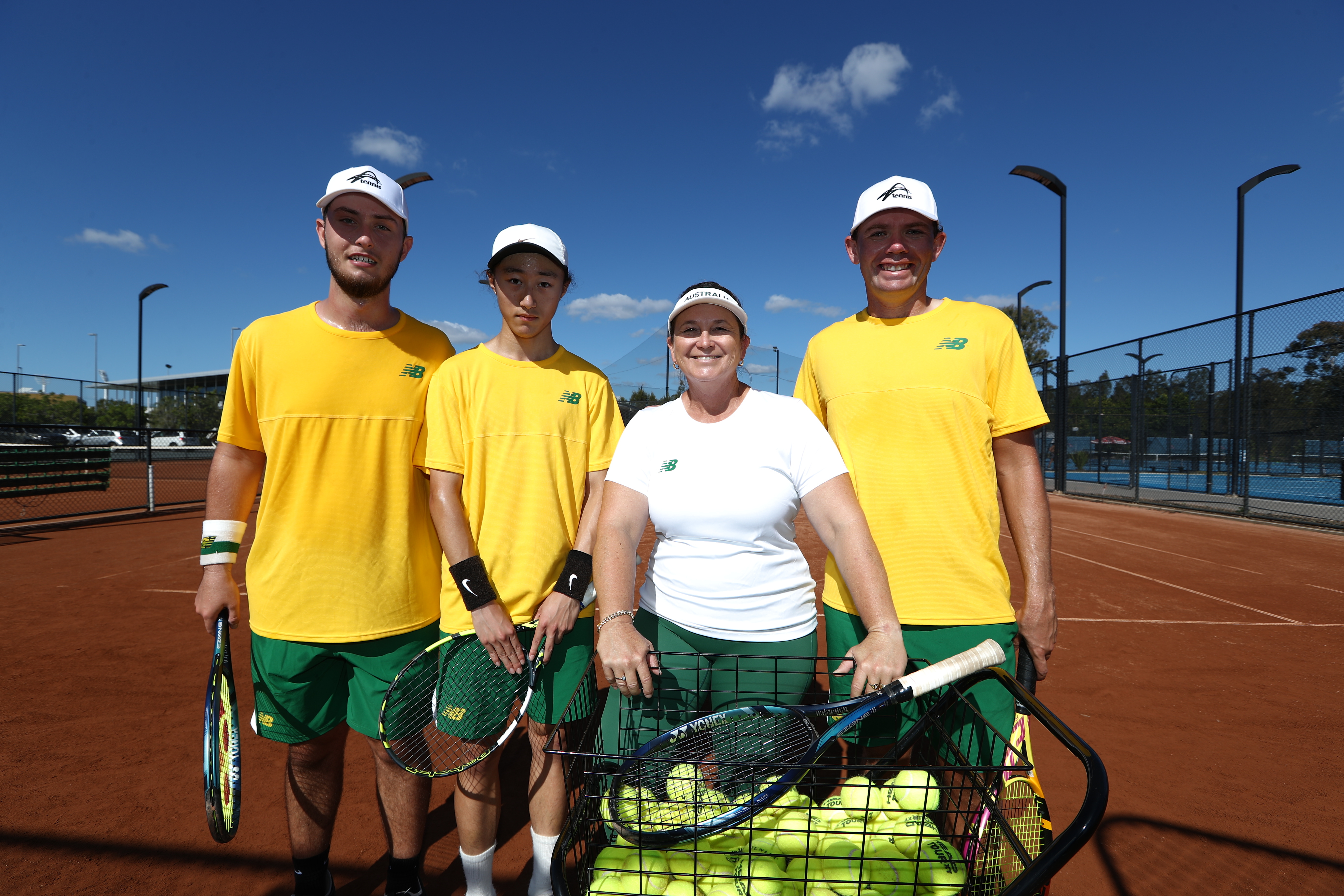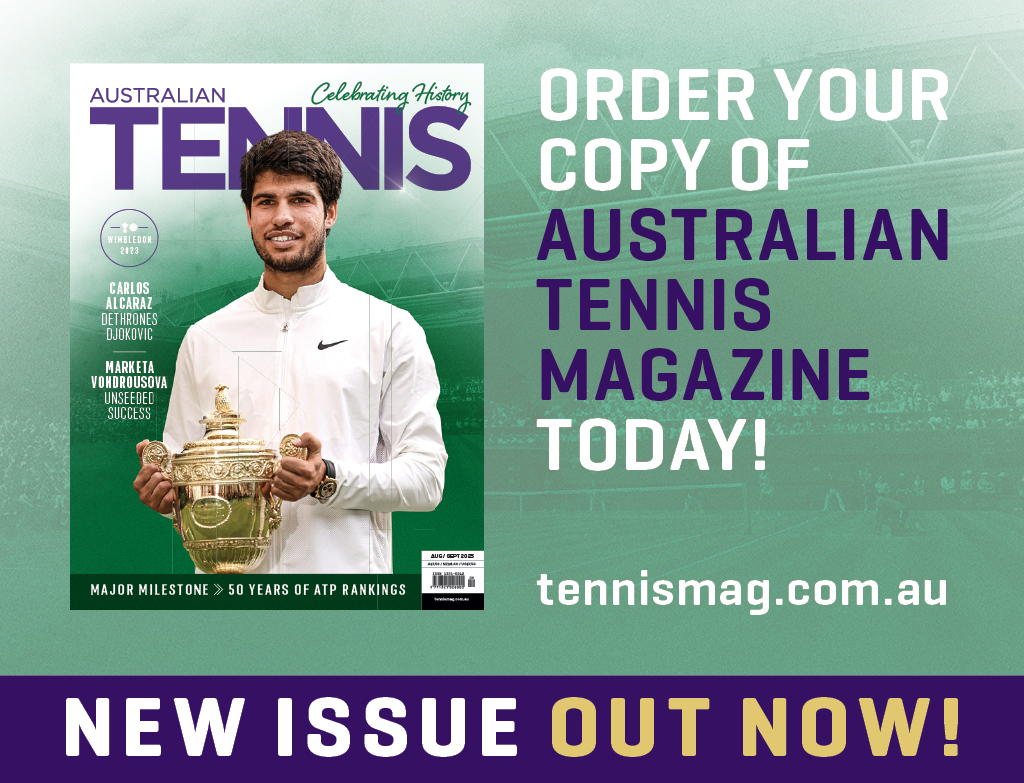In a coaching career spanning more than 25 years, Alison Scott has experienced many different challenges.
Her current position, as the Australian national coach for players with an intellectual impairment (PWII) and deaf and hard of hearing (DHoH), is proving one of the most rewarding.
"Well, every day is different. I can tell you that," Scott laughed when asked what makes the role so enjoyable.
"I think you have a higher level of respect for players with a disability. They try their hardest and they don't let their challenges get in their way.
"I find it really rewarding to see how they adapt to different situations. They definitely keep you centred in the sense that they are wanting to be a fantastic tennis player and it's our role to give them the knowledge to try and achieve those goals."
It was this ability to inspire others that initially encouraged Scott to pursuit a coaching career when she was 23 years old.
"I just love to be able to share my knowledge," Scott said. "I had a really, really good coach growing up and he was very, very good at teaching."
Scott, who started playing as a nine-year-old in Coffs Harbour, is proudly following in his footsteps.
"I've really enjoyed learning how to share knowledge in different ways," said the Brisbane-based coach.
"Because as a coach, you have to be able to teach in multiple methods to be able to connect with your players.
"Plus, I really love being out on court. So, I think if you love being where you are, it's going to flow through to how you share your knowledge with other people."
From teaching juniors and adults, leading private lessons and squads, as well as running school programs and managing tennis clubs, Scott's coaching experience is vast.
Her work in the inclusion space initially happened through chance circumstances, but has proven a major passion.
"I have coached players with a disability since I started coaching. There was always one or two players here and there," Scott said.
"When coaching interstate for a couple of years, I was working one-on-one with one of the Australian representative players with an intellectual disability.
"I took the time then to learn more about the pathway for PWII just to see what was available."
After returning to live in Brisbane, Scott was approached by Tennis Queensland to become their state PWII coach and run monthly squads.
It was an honorary role that Scott described as "a love job".
In 2015, Sport Inclusion Australia offered Scott the opportunity to travel to the Virtus Global Games in Ecuador as the national coach.
The Virtus Global Games, held every four years, are the world's largest elite sports event for athletes with an intellectual impairment.
"Obviously I said 'Yes, I would love to do that'," Scott related.
These experiences have led to full-time employment with Tennis Australia working in the inclusion coaching and development space.
"It's amazing to see how far we've come from when I first took on the head-coach role in 2015 to today," Scott noted.
"There has been massive, massive growth in the support for players with a disability, which is just brilliant.
"It makes their challenges less. They don't have to try and strive so hard to just get acknowledgement, because it's now happening for them organically. And that's the way it should be."
An 11-member Australian team competed at the 2023 edition of the Virtus Global Games in France in June, with Scott serving as head coach for a third time.
For the first time, players on the autism spectrum were also invited to compete.

"It's always an amazing experience travelling with our team and preparing them as well," Scott said.
"There's a lot of preparation that goes into getting our team ready for an international event. We worked a lot on building our team culture and positive values.
"Because we're such a big team, we need to ensure that we're representing our sport and our country in a very positive way. We expect our players to be respectful and to be resilient.
"Our team absolutely did that and I'm very proud of them for that."
The Australian team also produced impressive on-court results, claiming nine medals. This included three gold medals.
Australia dominated the men's singles section, with Archie Graham, Timothy Gould and Hunter Thompson all winning their respective categories.
> READ: Australian team wins nine medals at 2023 Virtus Global Games
"It was fantastic to see how well everyone did," Scott said. "There's a lot more pressure for the players when they go to an international event, but our players always try their hardest and strive to do their best."
Scott is determined to continue raising awareness for all these different opportunities that exist for players with a disability.
"Our challenge is getting the word out on what opportunities there are, because there are a lot of competitive opportunities for players with a disability," Scott said.
"The biggest goal for us is also to try and find more players.
"Finding players at a younger age will really help in developing the growth in our sport. It's really evident worldwide, especially in the PWII and DHoH space, that there are players already competing in mainstream competitions.
"You need diversity. We don't want the players in the pathway to always be playing the same people all the time."
> LEARN MORE: Tennis Australia's inclusion and diversity pathways
Scott is also hopeful the number of coaches offering inclusive opportunities across the country continues to grow.
"It would be great for more coaches to know and learn how to coach players with a disability," Scott said.
"Not that it's much different to coaching players without a disability. It's actually not much different at all."
Although Scott acknowledges that tennis is "a challenging sport" to master, she truly believes it is a sport for all.
"Tennis caters to a wide variety of personalities. It can either be a team sport or it can be an individual sport," she explained.
"It definitely tests your independence and how resilient you are, because it is not an easy sport to learn. But for a lot of players, when they learn how to play tennis, they love it for life."
That's certainly proved the case for Scott, who has turned her passion for the sport into a fulfilling career.
"I think that's one of the biggest benefits of tennis, is that it will give back to you forever," she said.
This article originally appeared in the August-September edition of Australian Tennis Magazine.
Book online, play today: Visit play.tennis.com.au to get out on court and have some fun!

